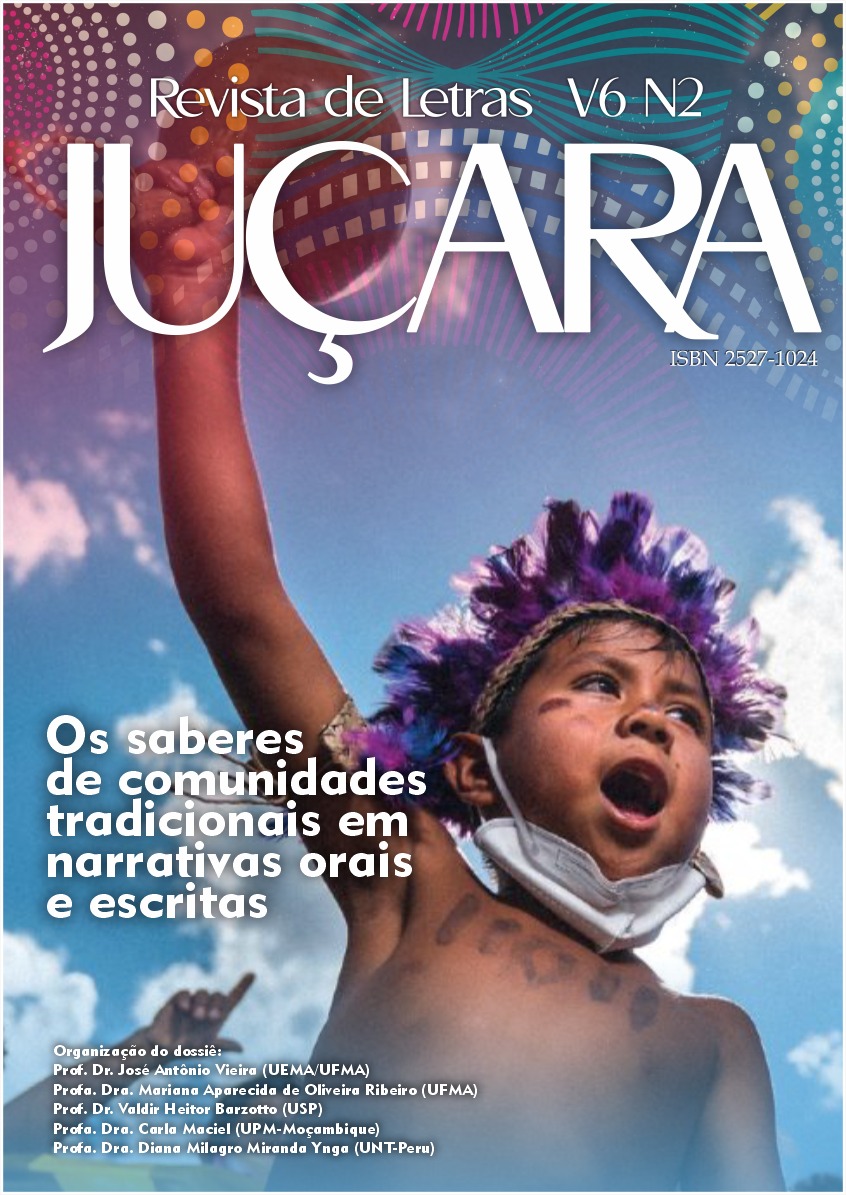CONHECIMENTO EM PERIGO: AQUISIÇÃO, ENSINO E EXCLUSÃO DO QUÍCHUA NO PERU
DOI:
https://doi.org/10.18817/rlj.v6i2.3040Resumo
Resumo: Este artigo oferece um olhar crítico sobre a situação do conhecimento ancestral, a partir de uma revisão do quíchua como língua materna e como segunda língua no Peru, especialmente levando em conta sua evolução como língua escrita. Explora-se a aquisição e o ensino do quíchua, para refletir sobre a exclusão histórica do quíchua e de seus falantes, que continua até hoje, apesar de desde 1993 a constituição peruana considerar oficiais todas as línguas nativas. Conclui-se que essa exclusão persistente coloca em risco os saberes ancestrais, na medida em que viola e destrói os laços de transmissão intergeracional, prejudicando e limitando as possibilidades de revitalização dos saberes ancestrais; no entanto, também há possibilidades de transformar o risco em oportunidade.
Palavras-chave: Quechua. Peru. Aquisição. Ensino. Exclusão.
Downloads
Publicado
Versões
- 2022-12-29 (2)
- 2022-12-29 (1)
Como Citar
Edição
Seção
Licença
Copyright (c) 2022 Roxana Quispe Collantes

Este trabalho está licenciado sob uma licença Creative Commons Attribution 4.0 International License.
A submissão de originais para a Revista de Letras Juçara implica na transferência, pelos autores, dos direitos de publicação. Os direitos autorais para os artigos publicados nesta revista são do autor, com direitos da revista sobre a primeira publicação. Os autores somente poderão utilizar os mesmos resultados em outras publicações indicando claramente a Revista de Letras Juçara como o meio da publicação original.


